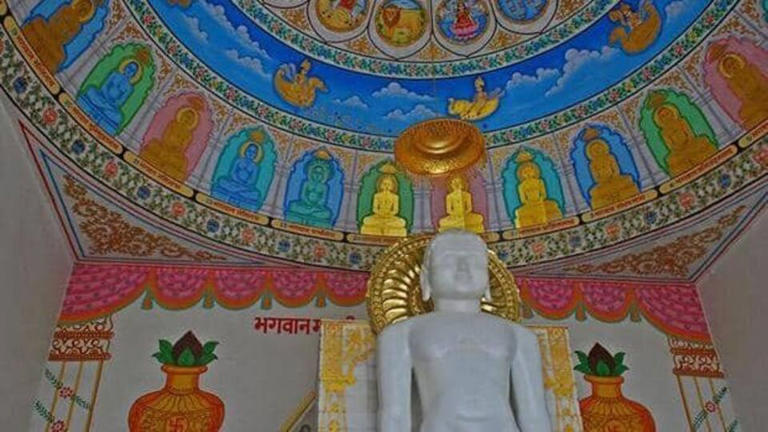Mahavir Jayanti 2024 Date: One of the most significant festivals of Jainism, Mahavir Jayanti, this will be celebrated on April 21, 2024. Here’s all you need to know, from date to history, and more.

Mahavir Jayanti 2024 Date in India, History and Significance: Mahavir Janma Kalyanak, also known as Mahavir Jayanti, is one of the most significant festivals in Jainism, celebrating the birth anniversary of Lord Mahavir, the 24th and last Thirthankara of Jainism.
Mahavir, renowned as a teacher who propagated Dharma in Jainism, was born on the Trayodashi (13th) date of Shukla Paksha (the bright half) of the Hindu month of Chaitra, which falls in late March or early April as per the Gregorian calendar.
Celebrated by Jains around the world, Mahavir Jayanti is observed through religious processions, prayers, chants, and sermons. The day is marked by celebration, reflection, and a renewed commitment to the teachings of Lord Mahavir.
Here is all you need to know, from date to history, significance, traditions, and more.
Mahavir Jayanti 2024
Mahavir was born on the Trayodashi of Shukla Paksha of the Hindu month of Chaitra. As we celebrate his 2622nd birthday this year, it will start on April 20 at 10:41 p.m. and end on April 22 at 1:11 p.m., as per the Panchang. Given this, the entire Udaya, the festival of Mahavir Jayanti, will be observed on Sunday, April 21, 2024.
Born as Vardhamana into the royal family, to King Siddhartha and Queen Trishala, in the early part of the 6th century BCE in Kundagrama, which is in modern-day Bihar, India, Mahavira, or the ‘great hero,’ renounced his royal status and familial ties at the age of 30 to seek spiritual awakening. After 12 years of intense meditation and ascetic life, Mahavira attained Kevala Jnana (omniscience or supreme knowledge) and spent the next 30 years travelling around India to teach his philosophy.
Known for his teachings of non-violence, compassion, and the importance of leading a simple and austere life, his core teachings included Ahimsa (non-violence), Satya (truth), Asteya (non-stealing), Brahmacharya (chastity), and Aparigraha (non-attachment), which later became the fundamental principles of Jainism.







